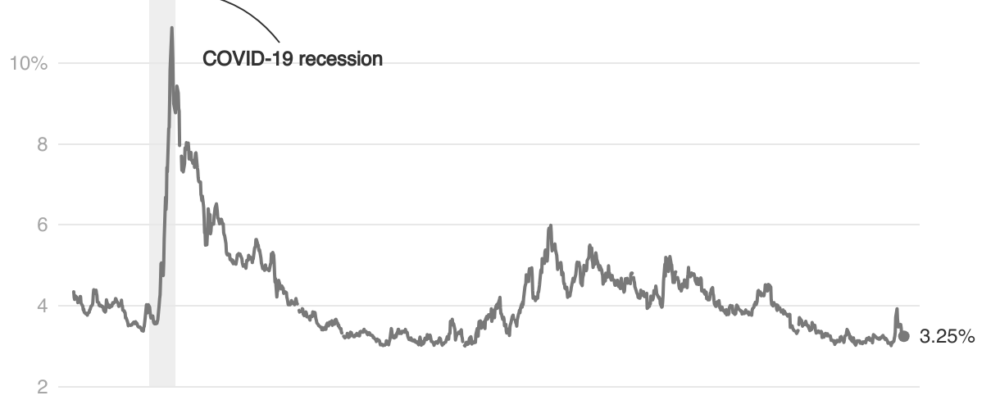(Image created with Midjourney, an artificial intelligence tool)
Happiness, an elusive condition we all want to experience, is a popular topic. It’s a complex subject. It may or may not require everything from good health to sufficient wealth to good relationships in varying degrees for each of us. The result is measured in terms of outcomes that may be more or less than we expected, just as customer satisfaction is measured in terms of whether our expectations were met or exceeded.
But how many of us take time out periodically to map out our changing expectations for our physical and mental wellbeing and the things that determine them—our relationships with family and friends, our careers, our financial wealth, our physical and spiritual exercise and diet?
The notion is that if we set goals for “enough,” we’ll be more conscious of meeting them and more likely to do so. Success in meeting them brings a sense of wellbeing that contributes to one’s happiness. It’s not necessarily a signal that it’s time to retire; it’s a self-generated milestone that may enable us to branch off into new, interesting directions with new goals, satisfied that our basic goals have been met.
Those of us who fail to have this conversation with ourselves run the risk of chasing and acquiring things that are never enough.
These matters are highly personal. I like to think that how we make decisions on these matters determines, as the old saying goes, “whether we can live with ourselves or not.” That’s not a bad yardstick for decision-making in the happiness business. Most of us would probably agree that “what’s enough” should be a bit of a stretch but achievable. For example, for many years my spouse and I shared an objective of remaining friends with our three children during our lives—not too ambitious but not always assured.
“Career planning provides an opportunity to think about ‘enough,’ especially in a given timeframe.”
Our late colleague at Harvard Business School, Clayton Christensen, provided inspiration for this kind of thinking by advising us, “Think about the metric by which your life will be judged”—one might add, both by others and by yourself. “Don’t worry about the level of individual prominence you have achieved; worry about the individuals you have helped become better people.”
Career planning provides an opportunity to think about “enough,” especially in a given timeframe. In my case, I tried to think seriously about it every five years or so. The result was what I like to think of as short-term dreaming within the context of a long-term dream. Think of the lyrics to the tune “Happy Talk” from the Broadway show South Pacific: “You got to have a dream. If you don’t have a dream, how you gonna have a dream come true?”
We take our financial cues from friends and acquaintances, whether they accumulate just enough to retire or billions of dollars in wealth. The happiest among them appear to set goals of giving nearly all of it to others in an effort to leave the world a better place than they found it.
For example, an inspiring acquaintance, Jack Bogle—founder of the Vanguard Group, comprising over $8 trillion in funds placed there by investors, and author of a book entitled Enough—died with an estate valued at $80 million, a pittance compared to today’s multibillionaires and much less than most people would have assumed. One reason was that he gave away half of what he earned throughout his career. He gained a great deal of satisfaction from being frugal with the rest. His major regret was that he didn’t have more money to give away during his lifetime.
HBS colleagues Laura Nash and Howard Stevenson expressed some of the same thoughts in a book they coauthored titled Just Enough, a personal determination made through “the art of complex decision-making about noncomparable goods.” As a result, I’ve only half-jokingly told friends that I’d like the inscription “He Came Out Even” on my gravestone.
To what degree do we compare ourselves to others in measuring? Years ago, a former student who became human resource director at a well-known Wall Street investment firm told me that one of his constant concerns was the financial wellbeing of the firm’s executives. Several were flirting with bankruptcy. The reason? The need to have the biggest condo, the best car (in New York?), the biggest boat, the fanciest wine. In the scramble to win the contest, much of this was acquired on borrowed money. None had given any thought to what was enough. It depended on how their colleagues were behaving, probably with equally little thought about “enough.”
HBS colleague and happiness expert Arthur Brooks refers to this as “the striver’s curse” and notes that “there is no competition for the prizes. We can all succeed and all be happier.” Of course, it requires more time spent looking within ourselves and less time looking outward.
Is this even a good way to think about our accomplishments? Our lives? Our happiness? When is the last time you’ve given concentrated attention to these matters? What’s enough? What do you think?
What’s Enough to Make Us Happy? What do you think?
Share your thoughts in the comments below.
Reference:
- John C. Bogle, Enough.: True Measures of Money, Business, and Life (John Wiley & Sons, Inc., 2009)
- Arthur C. Brooks, From Strength to Strength: Finding Success, Happiness, and Deep Purpose In the Second Half of Life (Portfolio/Penguin, 2022), p. xiv
- Clayton M. Christensen, James Allworth, and Karen Dillon, “How Will You Measure Your Life?,” Harvard Business Review, July-August, 2010
- Oscar Hammerstein II and Richard Rogers, lyrics to “Happy Talk,” South Pacific, (Williamson Music Company, ASCAP, 1949)
- Laura Nash and Howard Stevenson, Just Enough: Tools for Creating Success in Your Work and Life (John Wiley & Sons, Inc., 2004)
Your feedback to last month’s column
Do People Want to Work Anymore?
“Let’s turn that sleeve inside out. ‘People don’t want to employ any more.’ … They aren’t investing in the staff and are miffed that the staff isn’t investing in them.” Katherine Lawrence’s comment typified the majority of responses to last month’s column. To sum up, management policies and the leadership that creates them—not employee attitudes toward work—are responsible for the disengagement of employees from their jobs.
Other influences were cited as potential causes for what may be happening. For example, John Miller cited leadership as an issue, commenting that, “If the owner is not excited about his business and cannot communicate the vision and purpose to his employees, why would they get excited or care?” DJ laid much of the blame on a “government (that) paid people to stay home and do nothing” during the COVID pandemic. Distressed Irene called out parents for raising children who “have never been raised to do chores around the house.”
Molly Anderson expanded on the notion of management’s responsibility by asking the question, “Is it that people, especially younger workers, don’t want to work at all or that they don’t want to work in today’s companies?” She points to the issue of diversity as an example, saying, “A diverse workforce has diverse motivators and diverse ideas of success. Companies don’t yet know how to operate in that world…”
“Harvard Business School is the graduate business school of Harvard University, a private research university in Boston, Massachusetts. It is consistently ranked among the top business schools in the world and offers a large full-time MBA program, management-related doctoral programs, and executive education programs.”
Please visit the firm link to site






